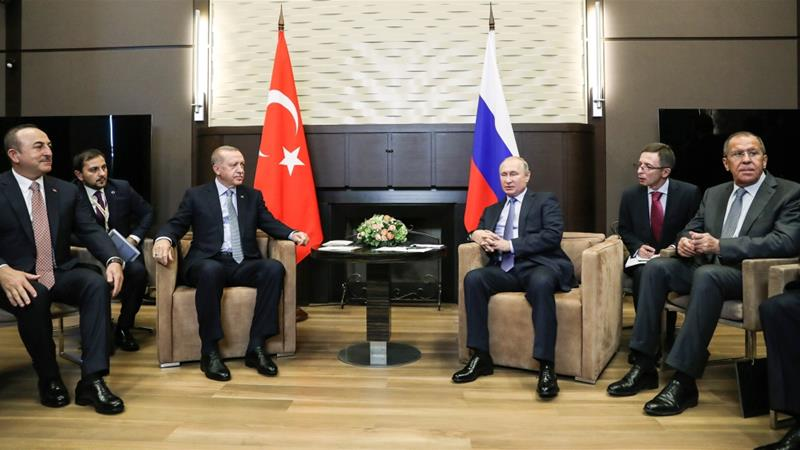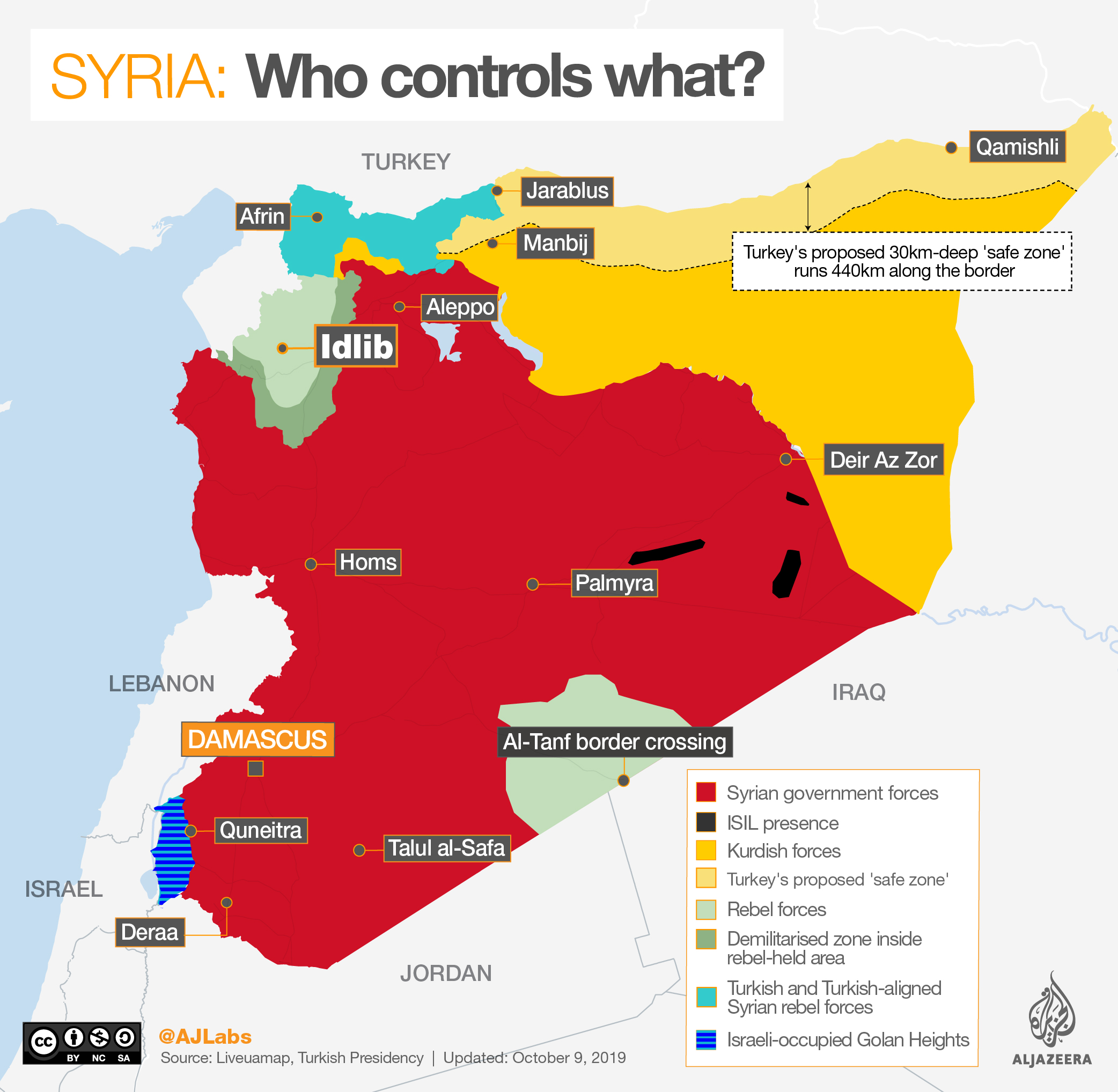Turkish President Recep Tayyip Erdogan is holding talks with his Russian counterpart, Vladimir Putin, at the Black Sea resort of Sochi on Tuesday, hours before a ceasefire between Turkish and Kurdish forces in northern Syria is set to expire.
Putin and Erdogan’s talks will focus on “normalising the situation” in northeast Syria, according to the Kremlin.
More:
There has been relative calm in northeast Syria since Turkey agreed on Thursday to a 120-hour pause in hostilities to allow Kurdish-led fighters Ankara considers “terrorists” to withdraw from the border area.
The United States-brokered truce is set to expire at 19:00 GMT on Tuesday.
“The situation in the region is very severe,” Putin told Erdogan as talks began in Sochi. He added that the good rapport between Russia and Turkey, which back opposing sides in Syria’s war, “will let us find an answer to even the most difficult questions”.
Turkey launched its offensive in northeast Syria, dubbed Operation Peace Spring on October 9, aiming to create a “safe-zone” cleared of the Kurdish People’s Protection Units (YPG). Ankara considers the YPG an extension of the Kurdistan Workers Party (PKK), which waged an armed struggle for autonomy against the Turkish state for decades.
Ankara also wants to resettle some of the 3.6million refugees it currently hosts inside the so-called “safe zone”.
Before departing for talks with Putin, Erdogan told reporters that Ankara would resume the military offensive in Syria unless the Kurdish fighters withdrew from the area.
“If the promises given to our country by the United States are not kept, we will continue our operation from where we left off with greater determination,” he said.
The YPG-led Syrian Democratic Forces (SDF) were Washington’s main ground ally in the fight against the Islamic State of Iraq and the Levant (ISIL or ISIS).
|
|
Erdogan’s meeting with Putin will be key to Ankara’s plans to establish the so-called “safe zone”, as Russia is Syrian President Bashar al-Assad‘s strongest backer.
Moscow has traditionally opposed operations into what it considers Syria’s sovereign territory, and Syrian and Russian forces have already deployed in the border towns of Manbij and Kobani, which are both located within Turkey’s designated “safe zone”.
The Syrian army deployment followed a deal with the Syrian Kurds, who sought help from Damascus after US President Donald Trump ordered US troops out of the area.
Erdogan said last week he could accept Syrian forces entering Manbij as long as the YPG was removed.
Turkey’s military said in a statement on Monday that it has recorded at least 125 vehicles, carrying YPG fighters, leaving the “safe zone”. The SDF has pledged to abide by the ceasefire deal.
Following the YPG’s withdrawal, Turkey will set up the first phase of the “safe zone” between Ras al-Ain and Tal Abyad, and extend it to 444km in the second phase, a Turkish security source told AFP news agency.
Separately on Tuesday, al-Assad denounced Erdogan as a “thief” and pledged to retake all areas his government lost in the country’s long-running war.
While touring an area in war-torn northwestern Idlib province close to the last major bastion of Turkey-backed rebel forces, al-Assad was quoted as saying by state media: “Erdogan is a thief and is now stealing our land.”
With the war now in its eighth year, capturing the Idlib area would be an important victory for al-Assad, who has steadily recovered control of rebellious areas with Russian and Iranian support.
“We said and continue to say that the Idlib battle is the core to decisively end chaos and terrorism in all of Syria,” al-Assad was quoted as saying.
Erdogan has denied any territorial ambitions in Syria, however.
Moscow and Ankara have forged a delicate alliance in the past year, with Turkey purchasing a powerful Russian anti-aircraft system, the S-400, despite criticism from fellow NATO member states.
|
|
(SOURCE: AL JAZEERA AND NEWS AGENCIES)








 WhatsApp us
WhatsApp us 

